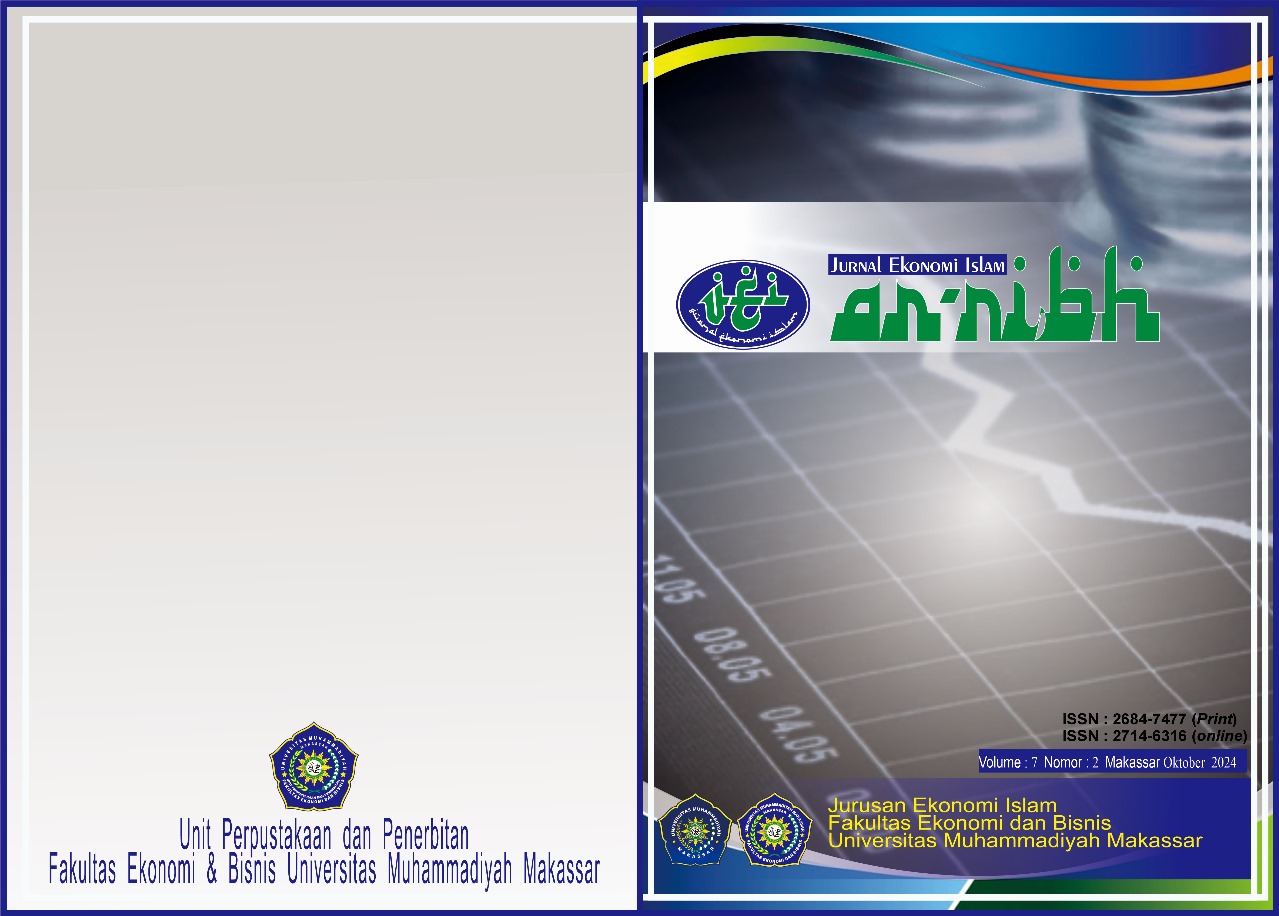Fractional Reserve Banking in Islamic Finance: A Comparative Analysis of Islamic and Western Economic Perspectives
DOI: https://doi.org/10.26618/jei.v8i1.17634
Abstract
This article examines the concept and implementation of fractional reserve banking (FRB) through the lens of both Western economic thought and Islamic finance. Utilizing a qualitative methodology with a library research approach, this study investigates theoretical and practical differences between the two paradigms. In conventional Western finance, FRB is widely accepted as a mechanism that enables credit expansion, supports investment, and enhances liquidity within financial systems. Economists such as Mises, Keynes, and Rothbard offer varying justifications and criticisms of this system—ranging from monetary creation efficiency to moral hazards such as artificial credit inflation. Conversely, Islamic economic thought fundamentally challenges the legitimacy of FRB due to its connection with interest (riba), risk of gharar (uncertainty), and issues of dual ownership in deposit structures. Islamic scholars argue that the practice contradicts the principles of ownership (milkiyah) and justice in financial dealings, thereby undermining the ethical framework of Sharia-compliant finance. The paper highlights how the replication of conventional banking practices in Islamic finance raises concerns about authenticity and systemic risks. Additionally, it addresses the resurgence of proposals for full-reserve banking following global financial crises, suggesting growing discontent with the status quo. Ultimately, this comparative analysis reveals a significant philosophical and operational divide between Western and Islamic views on banking and monetary policy. The study contributes to ongoing discussions about ethical financial reform and provides critical insights into the viability of implementing fractional reserve banking in Islamic financial institutions.
References
Ahmada, Z., Ismail, A. G. "Full reserve system an the Maqasid Shariah". Journal of Emerging Economies & Islamic Research. 5 No. 2 (2017): 58-66. https://myjurnal.mohe.gov.my/public/article-view.php?id=107751
Al-Jarhi, Mabid Ali, “Towards an Islamic Monetary and Financial System: Structure and implementation”, Munich Personal RePEc Archive (MPRA) Paper 83714 Series No. 5 (1981): 1-86 https://ideas.repec.org/p/pra/mprapa/83714.html
Asli Demirgüç-Kunt and Enrica Detragiache, “Does Deposit Insurance Increase Banking System Stability? An Empirical Investigation”, Journal of Monetary Economics, 49, Issue 7, (2002): 1373-1406 https://doi.org/10.1016/S0304-3932(02)00171-X
Asli Demirgüç-Kunt and Enrica Detragiache, “The Determinats of banking Crises in Developing and developed Countries”, IMF Staff paper, 45. No.1 (1998): 1-29 https://www.imf.org/external/pubs/ft/staffp/1998/03-98/demirguc.htm
Benes, J., & Kumhof, M. The Chicago Plan Revisited. IMF Working Paper, WP/12/202 (2013): 1-71 https://www.imf.org/en/Publications/WP/Issues/2016/12/31/The-Chicago-Plan-Revisited-26178
Choudhury, M. A., & Mostaque, H., "a paradigm of Islamic money and banking". International Journal of Social Economics 32 No. 3 (2005): 203-217.
Diamond, D.W. “Financial Intermediation and Delegated Monitoring,” The Review of Economic Studies, 51, (1984): 393-414. https://doi.org/10.2307/2297430
Douglas W. Diamond and Philip H. Dybvig, “Bank Runs, Deposit Insurance, and Liquidity”, Journal of Political Economi, 91, no. 3 (1983): 1-17 https://www.journals.uchicago.edu/doi/10.1086/261155
Dow, S., Johnsen, G., & Montagnoli, A. “A Critique of Full Reserve Banking,” Sheffield Economic Research Paper Series. SERPS no. 2015008 (2015): 1-23 Retrieved from https://ideas.repec.org/p/shf/wpaper/2015008.html
Harold Ngalawa etc, “Banking Instability and Deposit Insurance: The Role of Moral Hazard”, School of economics & Finance, University of KwaZulu-Natal. SAEF Working Paper No. 2016/01/09/MWG02
Iris Claus and Arthur Grimes, “Asymmetric Information, Financial Intermediation and the Monetary Transmission Mechanism: A Critical Review,” Treasury Working Paper Series No 03/19, (2003): 1-24. https://econpapers.repec.org/paper/nztnztwps/03_2f19.htm
Kay, J. Narrow, “Banking: The Reform of Banking Regulation”, CSFI Centre for the Study of Financial Innovation. (2009): 1-56,
Keynes, John Maynard, A Treatise on Money: The Pure Theory of Money and The Applied Theory of Money, (Mansfield Centre: Martino Publishing, 2011)
Khan, M. S. “Islamic Interest-Free Banking: A Theoretical Analysis”. International Monetary Fund Staff Papers, 33 No.1 (1986): 1-27. Retrieved from http://www.jstor.org/stable/3866920
Mabid Ali Al-Jarhi, “Remedy For Banking Crises: What Chicago And Islam Have In Common: A Comment”, Islamic Economic Studies 11, No. 2, (2004): 23-42 Available at SSRN: https://ssrn.com/abstract=3164177
Manurung, M., and Prathama Rahardja, Uang, Perbankan, dan Ekonomi Moneter, (Jakarta : Penerbitan FEUI, 2004)
Marx, Karl, Capital Vol.3, London: Penguin, (1991)
Meera, AKM., & Moussa, L. "Ownership Effects of Fractional Reserve Banking: An Islamic Perspective". Journal Humanomics, 25 No. 2 (2009): 101-116 DOI:10.1108/08288660910964175
Mehmet Asutay, A Political Economy Approach to Islamic Economics: Sistemic Understanding for an Alternative Economic Sistem, Kyoto Bulletin of Islamic Area Studies, 1. No. 2 (2007): 3-18 http://dro.dur.ac.uk/4530/
Mike King, 2012, Creating Money out of Nothing: The History of an Idea, dikutip dari http://www.themeister.co.uk/economics, di akses 24 Oktober 2024
Rothbard, Murray N. The Mystery of Banking, (Auburn: Ludwig von Mises Institute, 2008): 2-10
Schumpeter, Joseph A, The Theory of Economic Development, (New Brunswick: Transaction Publishers, 2008)
Von Mises, Ludwig, The Theory of Money and Credit, (Indianapolis: Liberty Fund, 1981)
















